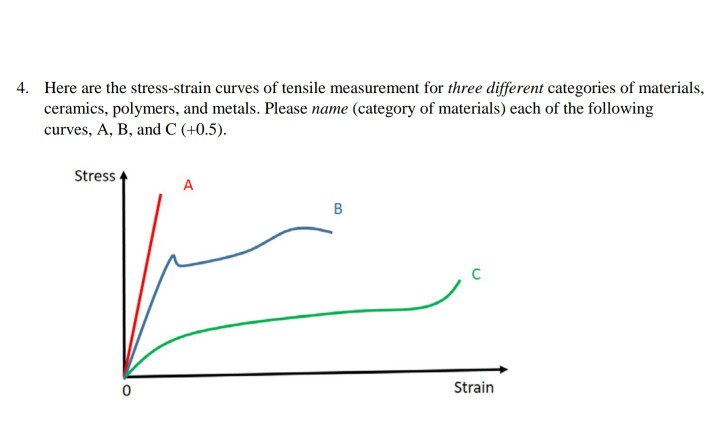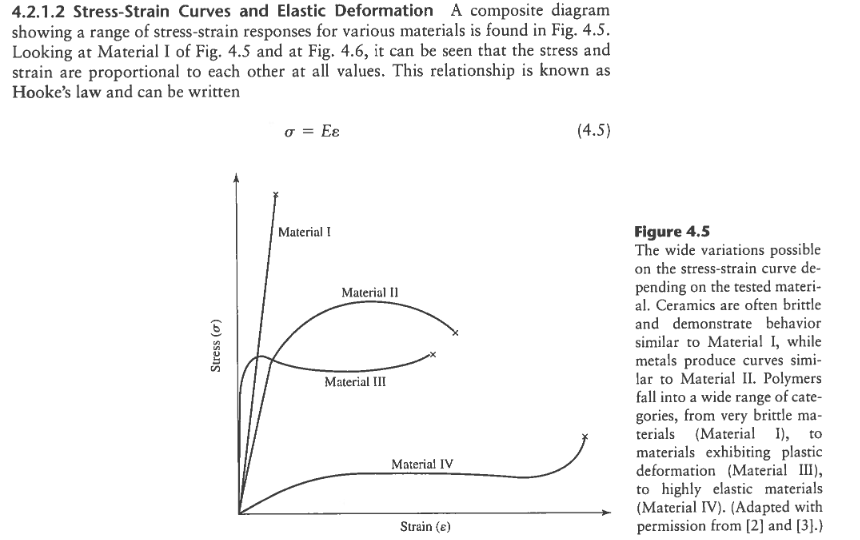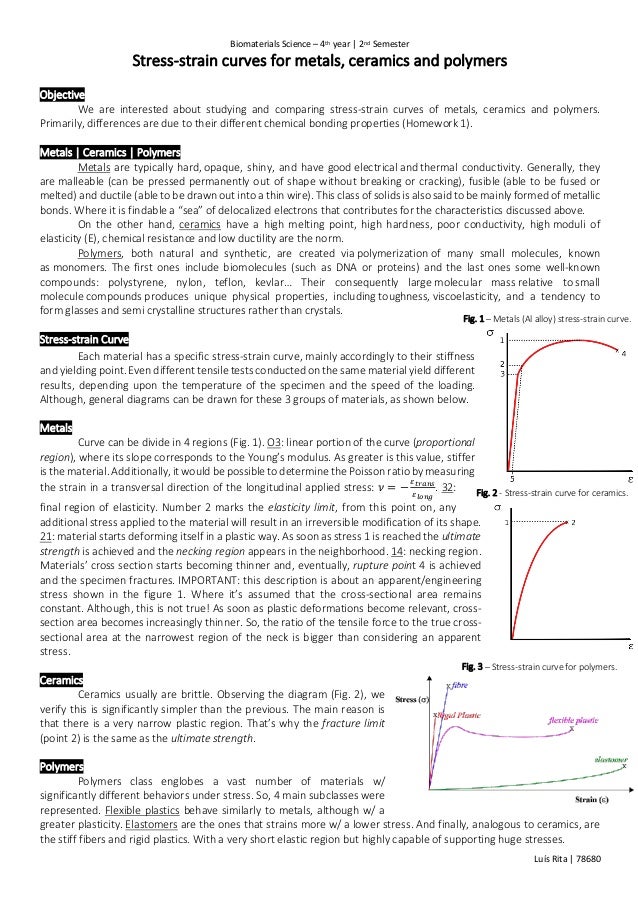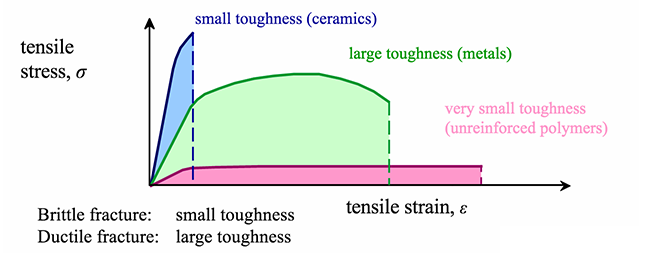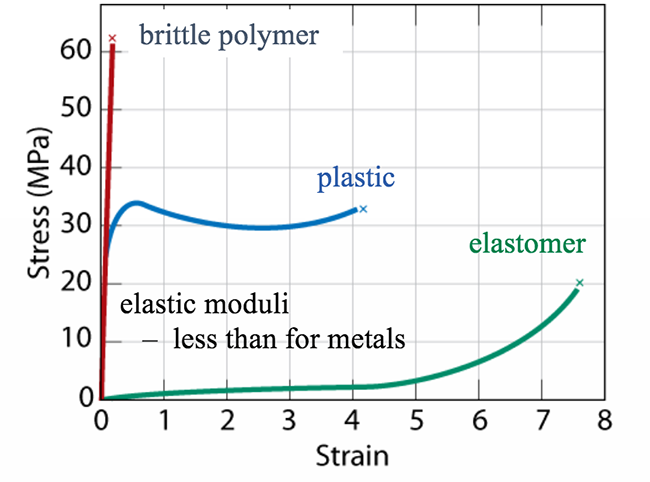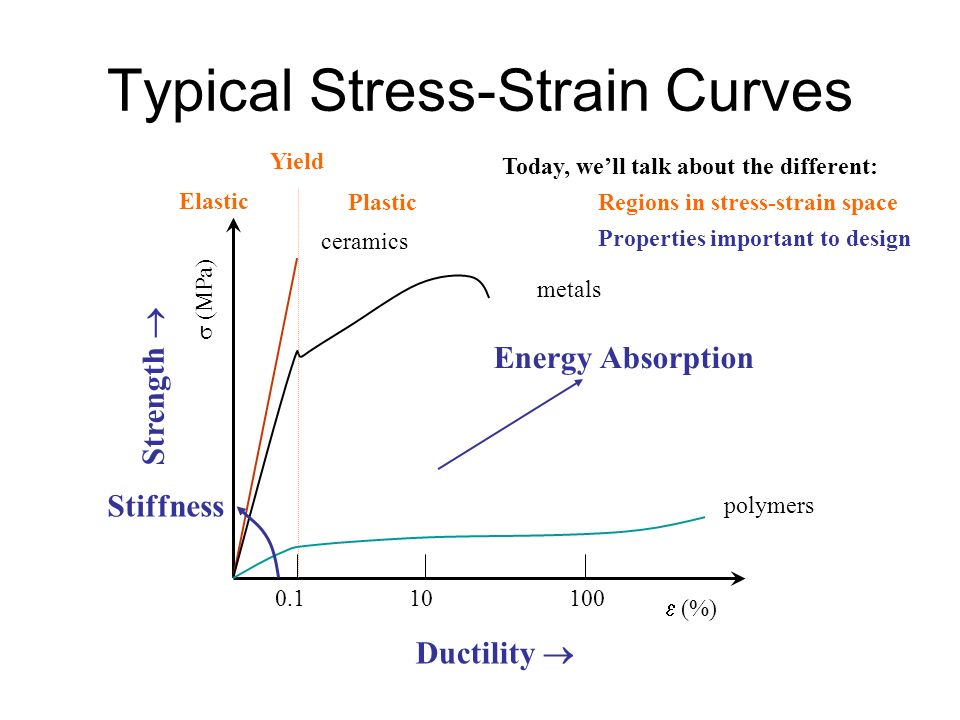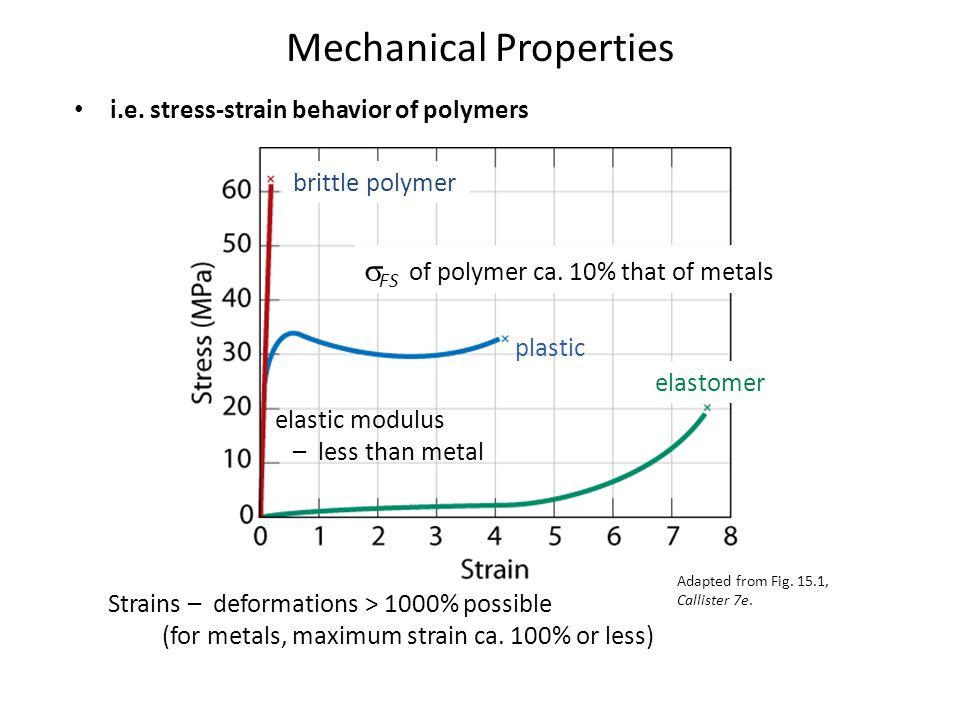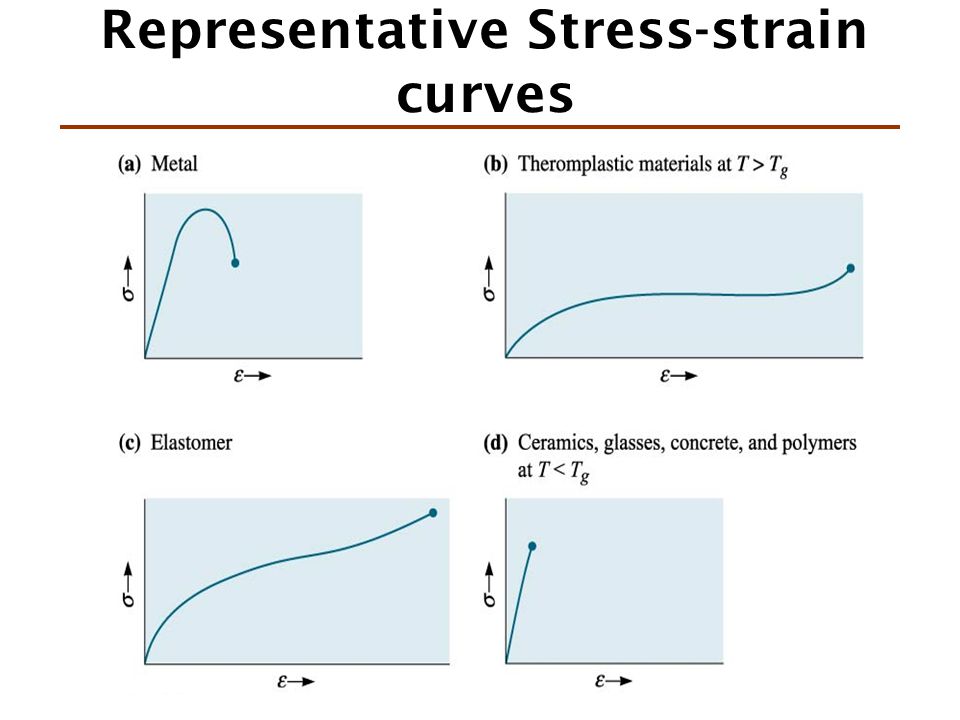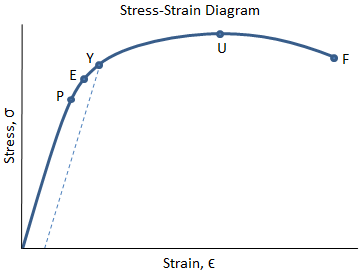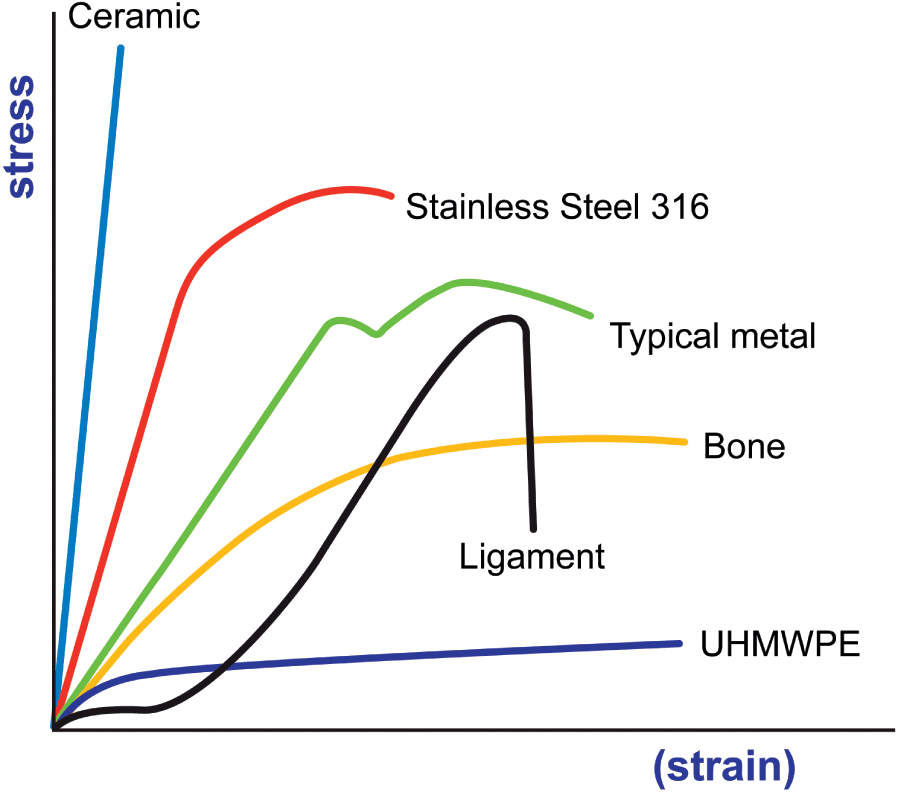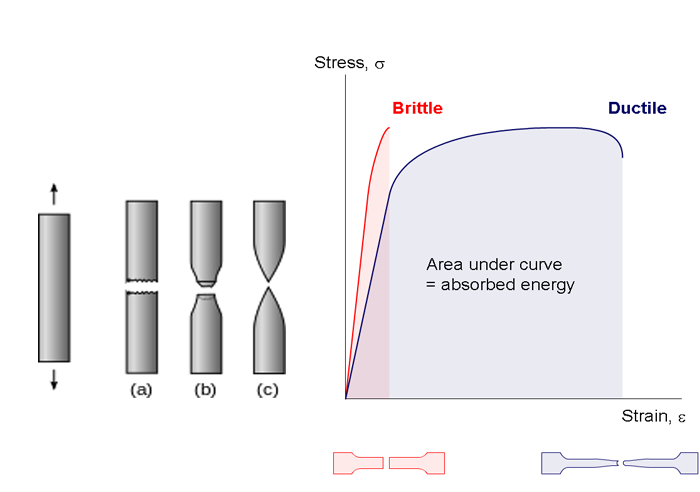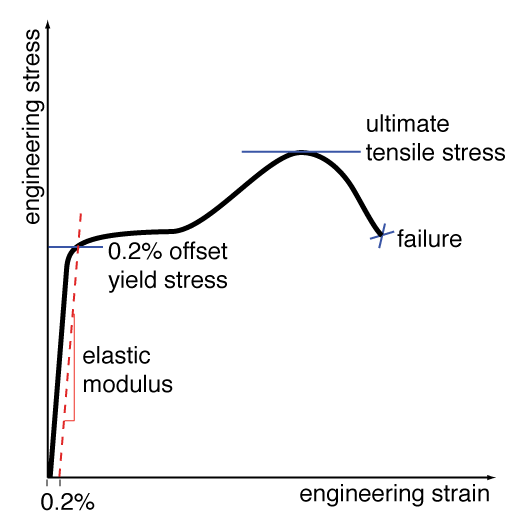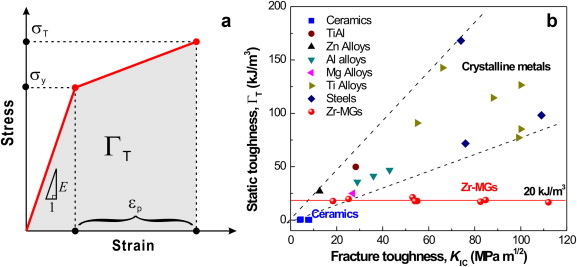The engineering stress strain curve does not give a true indication of the deformation characteristics of a metal because it is based entirely on the original dimensions of the specimen and these dimensions change continuously during the testing used to generate the data.
Ceramic vs metal stress strain curve.
The stress strain curve in this part of the graph is almost horizontal which implies that there is an appreciable increase in strain for a negligible increase in stress.
This does not however imply softening by alloying.
After the point d the material due to strain hardening again starts taking load and the curve rises as seen in the.
It is difficult to shape these materials into the proper test structure difficult to grab the brittle material without breaking it and it is difficult to align the test samples to avoid bending stresses.
Occurs when polymer backbones are aligned and about to break σ y engineering typical response of a metal ts stress engineering strain.
Stress strain curves of typical solid solution crystals with a stacking fault energy sfe lower than that of the base metal are shown in fig.
2 stress strain curve for ceramics.
In this the stress is plotted on the y axis and its corresponding strain on the x axis.
Stress strain curves for two brittle materials.
Stress strain curve is the plot of stress and strain of a material or metal on the graph.
Ceramic pores vs flexural strength.
1 ni co as a function of composition.
Represents straightening of the crimped ligament fibrils.
As pores increase strength decreases.
Depending on strain the flow stress of the alloy may be higher or lower than that of the base metal.
1 metals al alloy stress strain curve.
Stress strain curve for ceramic vs metal.
And finally analogous to ceramics are the stiff fibers and rigid plastics.
Yielding starts at c and ends at d.
Derived from axially loading an object and plotting the stress verses strain curve.
In engineering and materials science a stress strain curve for a material gives the relationship between stress and strain it is obtained by gradually applying load to a test coupon and measuring the deformation from which the stress and strain can be determined see tensile testing these curves reveal many of the properties of a material such as the young s modulus the yield strength.
Tensile tests of brittle ceramics are usually not performed.
Stress vs strain curve.
Restricting or hindering dislocation motion makes a material harder and stronger prevents slip which slows down plastic deformation and increases yield strength.
Elastomers are the ones that strains more w a lower stress.
After plotting the stress and its corresponding strain on the graph we get a curve and this curve is called stress strain curve or stress strain diagram.
Occurs when crack propagation starts polymers.
With a very short elastic region but highly capable of supporting huge stresses.
The zone where a material will return to its original shape for a given amount of stress toe region applies to a ligaments stress strain curve.

